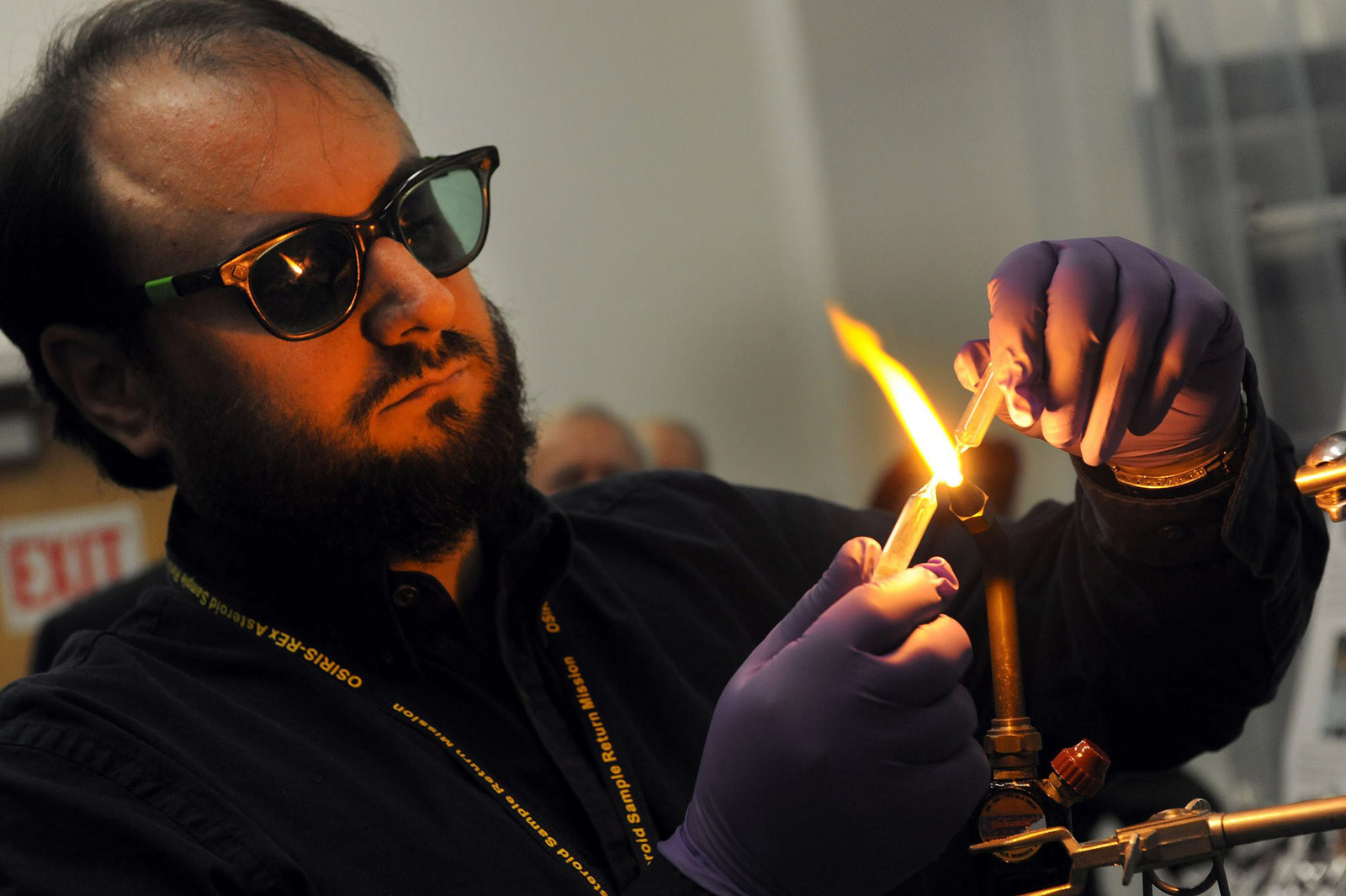
Jason Dworkin
Project Scientist - NASA’s Goddard Space Flight Center
This short Q&A was featured in a Nov. 19, 2018 article introducing a selection of people who work on the OSIRIS-REx mission to explore asteroid Bennu.
Expertise: Origin-of-life chemistry
Hometown: Houston, Texas
As a project scientist, I help maintain the scientific integrity of the mission. One way I do that is to work with the scientists and engineers so they can better understand each other. I also lead the team that developed stringent standards for cleanliness during the building of the spacecraft to avoid contaminating the sample that will be collected from Bennu. After OSIRIS-REx picks up the sample, and then delivers it to Earth in 2023, my lab at Goddard will help analyze it. Generally, all of the OSIRIS-REx teams I’m in charge of are focused on the sample.
Well, we don’t want to touch the sample with our hands. But I will be on the team that does the preliminary examination of the sample after it lands in the Utah desert. When the sample comes back, it’ll be stored at NASA’s Johnson Space Center in Houston. A curation team, which I oversee, is in charge of making sure the sample will be stored properly and that some of it is distributed to scientists around the world for study. Most of the sample will be archived for future scientists.
It’s very exciting. It’s years of work paying off. I’m eager to see what mysteries it has. I’m eager to see how our contamination strategy worked out. I’m excited to see what we can learn about the origin of life and the origin of the solar system.
I’ve been interested in the origin of life since third grade. I liked dinosaurs as a kid, and was interested in where dinosaurs came from. The logical extreme of dinosaurs is the origin of life. I eventually became interested in the origin of the solar system and then the origin of the universe and particle physics. But I discovered that particle physics involved a lot more math than I would be able to master.
Then, in 10th grade, I had to do a science fair project for biology class. But I liked chemistry better, so I thought, ‘Well, what part of biology is really chemistry?’ Origin-of-life research was the answer. I wanted to do a project expanding on some chemistry experiments from old journal papers; but that could have been dangerous.
I got in touch with Prof. John Oró at the University of Houston—a pioneering scientist in origin-of-life research—and asked for advice. He was worried that I would accidentally injure myself, so he invited me into his lab, where he and his graduate student supervised me on my science fair project. I ultimately stayed on as an intern in his lab through high school graduation; that helped set my career.
I studied biochemistry at Occidental College in Los Angeles. Then I did my doctorate in the NASA Specialized Center for Research and Training in Exobiology at University of California in San Diego, working under Stanley Miller, an authority on origin-of-life chemistry. After that, I worked as a post-doctoral researcher in the NASA Astrobiology Institute at NASA’s Ames Research Center in Mountain View, California.
OSIRIS-REx is NASA's first asteroid sample return mission. It is exploring a near-Earth asteroid called Bennu (formerly 1999 RQ36), and bring a sample of that small world back to Earth for study.
Planetary science is a global profession.


